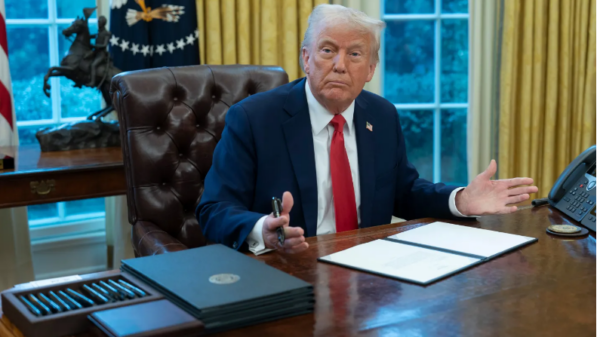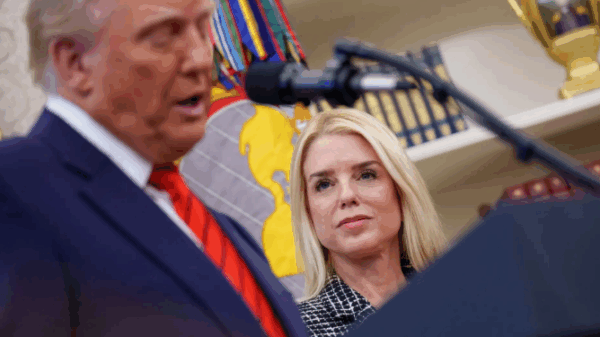President Donald Trump’s ongoing trade war with Canada, Mexico, and China is intensifying, with new tariffs imposed on Chinese imports in response to the ongoing fentanyl crisis, illegal border crossings, and trade imbalances.
Trump has targeted China with a 10% tariff, accusing the country of insufficient action in curbing the production of fentanyl precursor chemicals. These chemicals are believed to be manufactured in China and smuggled through Mexico, fueling the opioid crisis in the United States, which claims tens of thousands of lives each year. Trump’s administration argues that this trade action is necessary to protect American citizens from the devastating effects of fentanyl trafficking.
China Responds Defensively In a statement released by the Chinese Foreign Ministry on Sunday, China criticized the tariffs, stating that they would take “necessary countermeasures” to protect its rights. While the statement did not specify the exact retaliatory actions, it emphasized the importance of the U.S. addressing its own fentanyl issues rather than blaming China. Beijing also expressed concern that the U.S. action violated World Trade Organization rules and signaled its intention to bring a case before the body that governs global trade.
China has long defended its efforts to combat drug production, noting that it has some of the toughest counternarcotics policies in the world. The Chinese government claims that since it began implementing stricter laws to curb fentanyl production, the U.S. has not reported significant seizures of fentanyl precursors originating from China.
Trade Deficits and Domestic Impact The trade deficit between China and the U.S., which reached nearly $1 trillion last year, has been a consistent point of contention for Trump. The new tariffs on Chinese imports are expected to increase prices for U.S. consumers, impacting everything from clothing to electronics. Economists warn that these higher costs will ultimately be passed on to American consumers, with the potential to disrupt the global supply chain.
China’s export market stands to suffer, as U.S. consumers may turn to domestic products in response to rising prices. In addition to the trade imbalance, China’s domestic economy is under pressure from stagnating growth and high public debt, further complicating its ability to weather the fallout from the ongoing trade dispute.
Immigration and National Security Trump has also linked trade policies to his push for stricter immigration controls, including measures targeting illegal crossings at the U.S.-Mexico border. While illegal immigration from China represents a small fraction of overall border crossings, Trump has made it clear that he holds all countries accountable for citizens who enter the U.S. unlawfully.
The ongoing trade tensions and border security issues are central to Trump’s political agenda, which he has used to rally support from his base. As these disputes escalate, experts warn that both sides could face significant economic and political consequences, with global trade dynamics likely to shift in the coming months.








































